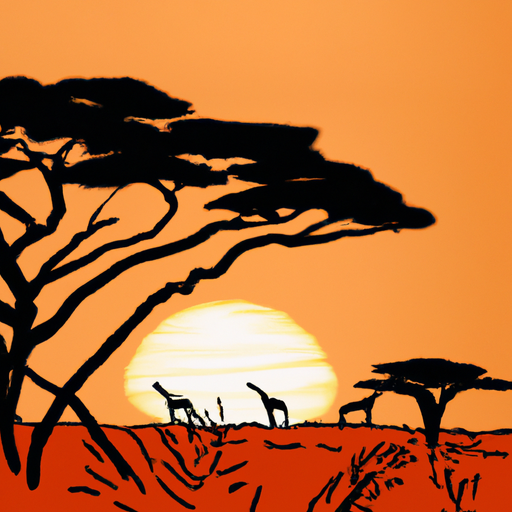Africa
Definition
Africa is a continent in the Eastern Hemisphere, mainly in the Southern Hemisphere, bordered by the Mediterranean Sea to the north, the Indian Ocean to the southeast, and the Atlantic Ocean to the west. It is the second-largest continent in the world, both in terms of land area and population.
Parts of Speech
Africa is primarily used as a proper noun.
IPA Pronunciation and Respelling
- IPA Pronunciation: /ˈæfrɪkə/
- Respelling in English: af-rih-kuh
Etymology
The word "Africa" comes from the Latin word "Africa terra," meaning "land of the Afri." The Afri were a group of indigenous people in the region of modern-day Tunisia. The term was later used by the Romans to refer to the entire continent.
Derivatives
- African
- Africana
- Afro-
- Africology
- Pan-African
Synonyms
- None
- None
- None
Antonyms
- None
- None
- None
Usage
The proper noun "Africa" is used to refer to the continent itself, as well as to describe various aspects related to the continent, such as African culture, African history, and African wildlife.
Related Terms
- Sub-Saharan Africa
- North Africa
- East Africa
- West Africa
- Central Africa
- African Union
Detailed Definition
As a proper noun, "Africa" refers to the continent that is the second largest in both land area and population. The continent is known for its diverse culture, wildlife, and natural resources. It is made up of 54 countries, with diverse languages, religions, and political systems. Africa has a rich history, with evidence of human life dating back millions of years. The continent has played a crucial role in world history, including the slave trade, colonization by European powers, and the struggle for independence and development in the post-colonial era.
africa



🇨🇳 Mandarin:
- 非洲 (Fēizhōu)
- IPA: /feɪ˥˥ʈ͡ʂoʊ˧˥/
- Respelling: fei-zhou
🇮🇳 Hindi:
- अफ़्रीका (Afrikā)
- IPA: /əfriːkɑː/
- Respelling: af-ree-ka
🇪🇸 Spanish:
- África
- IPA: /ˈaf.ri.ka/
- Respelling: ah-free-kah
🇫🇷 French:
- Afrique
- IPA: /a.fʁik/
- Respelling: a-freek
🇸🇦 Modern Standard Arabic:
- أفريقيا (ʾAfrīqiyā)
- IPA: /ʔaf.riː.qi.jaː/
- Respelling: af-ree-qi-ya
🇧🇩 Bengali:
- আফ্রিকা (Āphrikā)
- IPA: /ˈɑf.ri.kɑ/
- Respelling: a-fri-ka
🇷🇺 Russian:
- Африка (Afrika)
- IPA: /ˈa.fri.kə/
- Respelling: a-free-ka
🇵🇹 Portuguese:
- África
- IPA: /ˈa.fɾi.kɐ/
- Respelling: a-free-ka
🇮🇩 Indonesian:
- Afrika
- IPA: /a.ˈfri.ka/
- Respelling: a-free-ka
🇩🇪 German:
- Afrika
- IPA: /ˈa.fʁi.ka/
- Respelling: a-fri-ka
🇯🇵 Japanese:
- アフリカ (Afurika)
- IPA: /a.ɸu.ɾi.ka/
- Respelling: a-fu-ri-ka
🇻🇳 Vietnamese:
- Châu Phi
- IPA: /caw˧˩˧ ɸi˧˧/
- Respelling: chaw-phi
🇰🇷 Korean:
- 아프리카 (Apeurika)
- IPA: /a.pʰu.ɾi.ka/
- Respelling: a-pu-ri-ka
🇹🇷 Turkish:
- Afrika
- IPA: /ɑf.ri.ˈkɑ/
- Respelling: a-fri-ka
🇵🇰 Urdu:
- افریقہ (Afrikā)
- IPA: /əfriːkɑː/
- Respelling: af-ree-ka





